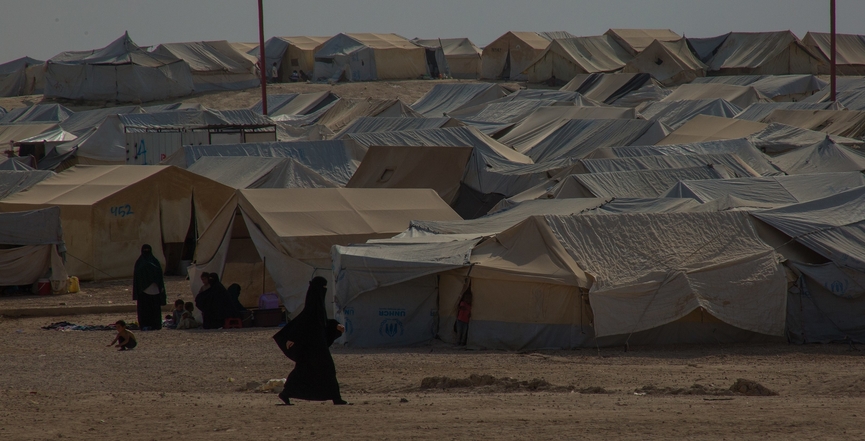On February 12, 2019, the International Day against the Use of Child Soldiers, Prime Minister Justin Trudeau declared the following:
“All children deserve a safe space to learn and grow. As part of our G7 Presidency last year, Canada and international partners announced a historic investment of $3.8 billion — the single largest investment of its kind — to support education for women and girls in crisis and conflict situations. Canada has also endorsed the Safe Schools Declaration to protect schools, teachers, and students during armed conflict.”
Trudeau’s words were crystal clear. Canada is serious and committed to protect, schools, teachers and students during armed conflict.
But what if the child is born to Canadian parents who allegedly went to fight in Syria? And what if the parents who fought died, and the children are orphaned? Would Trudeau still be committed to protecting them?
So far, the answer has been a resounding no. At least for the troubling case of little Amira.
Amira is a five-year-old Canadian girl, whose Canadian parents travelled to fight in Syria, where she was born. Little Amira’s parents and other siblings were killed in an airstrike, and sadly she was left alone in the Al-Hawl refugee camp in eastern Syria. In 2019, the camp population was estimated to be 74,000 people, mainly women and children.
So far, the Canadian government refused to repatriate little Amira so she can live with her uncles, cousins, grandparents and extended family in Canada. It didn’t want to provide her with travel documents so she can fly home.
There are about 900 children from western countries, including Canada, in different refugee camps in Syria run by Kurdish forces. Even France, which has 270 children from French nationals stuck in Syria and in which public opinion is adamantly against any sympathy towards French Muslims travelling abroad to fight, decided last month to repatriate 10 of the French children stranded in some of these camps.
These kids didn’t take up arms against anyone. However, assuming they are “child soldiers” through the actions of their Western parents, wouldn’t they be the perfect candidates to be included under the protections reserved for child soldiers?
Recently, little Amira’s uncle filed legal action against the Canadian government over its negligence in dealing with the case.
I think this is the best thing to do. “Playing nice” is often interpreted by the government as a lack of means, or a lack of determination. By taking legal action, the family of little Amira is sending a clear message to the Canadian government and Canadian public that the right place for little Amira is Canada, where her family loves her and wants her among them, despite the circumstances of her parents’ departure to Syria.
Regardless of the alleged actions of her parents, Amira is only five. She needs to be loved, nurtured and, most importantly, to go to school.
CSIS under scrutiny
Last week, meanwhile, we read in the news that CSIS has been lying to judges, using illegal methods to obtain warrants against Canadians who went to fight abroad. This was explosive news. Not surprisingly, it was met with almost no shame by the government and a sort of indifference from the public.
Judge Patrick Gleeson said that, in a case of a Canadian who went abroad to Syria, CSIS paid someone known to be facilitating or carrying out terrorism an amount totalling less than $25,000 over a few years.
A public inquiry should be announced. Getting to the bottom of this matter is the right thing to do by Trudeau and his government.
It’s time to bring Amira home
Last May, independent human rights experts at the United Nations called on Canada to repatriate little Amira, and have described the repatriation of children as “a humanitarian and human rights imperative.”
It’s time for the Canadian government to correct the wrong, fulfill its promise of protecting children in conflict zones, and bring little Amira home.
Monia Mazigh was born and raised in Tunisia and immigrated to Canada in 1991. Mazigh was catapulted onto the public stage in 2002 when her husband, Maher Arar, was deported to Syria where he was tortured and held without charge for over a year. She campaigned tirelessly for his release. Mazigh holds a PhD in finance from McGill University. In 2008, she published a memoir, Hope and Despair, about her pursuit of justice, and recently, a novel about Muslim women, Mirrors and Mirages. In 2017, she published Hope Has Two Daughters, a novel about the Arab Spring. You can follow her on Twitter @MoniaMazigh or on her blog.
Image: Y. Boechat/Wikimedia Commons



